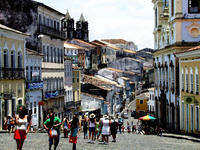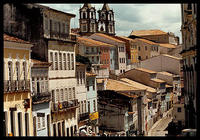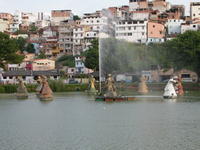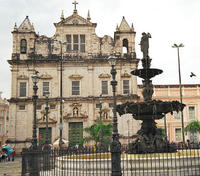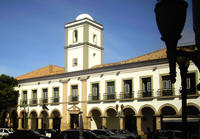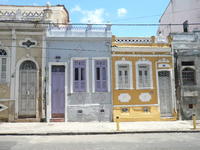You are in: South America -> Brazil -> Historic Centre of S... , and traditional search or Image Gallery will yield results of this site only
Historic Centre of Salvador de Bahia
| Site number: | 309 |
|
| Type of site: | Cultural | |
| Date: | 1549-1763 | |
| Date of Inscription: | 1985 | |
| Location: | South America, Brazil, Bahia State, north-east region of Brazil | |
Up to 75 images are shown here. Click on each for more details or on Image Gallery for more images.
Six official UN languages:
Arabic,
Chinese,
English,
French,
Russian,
Spanish
Other languages: Basque, Bengali, Bulgarian, Catalan, Croatian, Dutch, Esperanto, Finnish, Galician, German, Hebrew, Italian, Korean, Latvian, Ligurian, Lithuanian, Norwegian-bokmål, Occitan, Portuguese, Serbian, Swedish, Ukrainian
Other languages: Basque, Bengali, Bulgarian, Catalan, Croatian, Dutch, Esperanto, Finnish, Galician, German, Hebrew, Italian, Korean, Latvian, Ligurian, Lithuanian, Norwegian-bokmål, Occitan, Portuguese, Serbian, Swedish, Ukrainian
| Description: | Salvador de Bahia was the first capital of Brazil (1549 and 1763) thus experiencing the blending of European, African and Amerindian cultures. The city also became the first slave market in the New World (from 1558), when it saw slaves arriving to work on the local sugar plantations. Outstanding examples of Renaissance buildings have been preserved over the years and are currently an integral part of the urban plan. The city’s distinctive feature within the old town is a collection of brightly coloured houses often decorated with fine stucco-work. --WHMNet paraphrase from the description at WHC Site, where additional information is available. | |
| Salvador (in full, São Salvador da Baía de Todos os Santos, or in literal translation: "Holy Savior of All Saints' Bay") is a city on the northeast coast of Brazil and the capital of the northeastern Brazilian state of Bahia. The city was for a long time also known as Bahia, and appears under that name (or as Salvador da Bahia, Salvador of Bahia so as to differentiate it from other Brazilian cities of the same name) on many maps and books from before the mid 20th century. Salvador is the third most populous Brazilian city, after São Paulo and Rio de Janeiro, and it is the most populous city in Northeastern Brazil, being a cultural reference in Brazil for its cuisine, music and architecture. Its metropolitan area is the wealthiest in the northeastern region. 80% of the population of Salvador is of Black African origin, and African influence in all cultural aspects of the city turns it into the epicenter of "Negro culture" in Brazil. The historical center of the Salvador, frequently called the Pelourinho, is extremely rich in historical monuments dating from the 17th through the 19th centuries and has was declared a World Heritage Site by UNESCO in 1985. --Wikipedia. Text is available under the Creative Commons Attribution-ShareAlike License. | ||
| Source: | http://whc.unesco.org/en/list/309 | |
| Reference: | 1. UNESCO World Heritage Center, Site Page. | |




